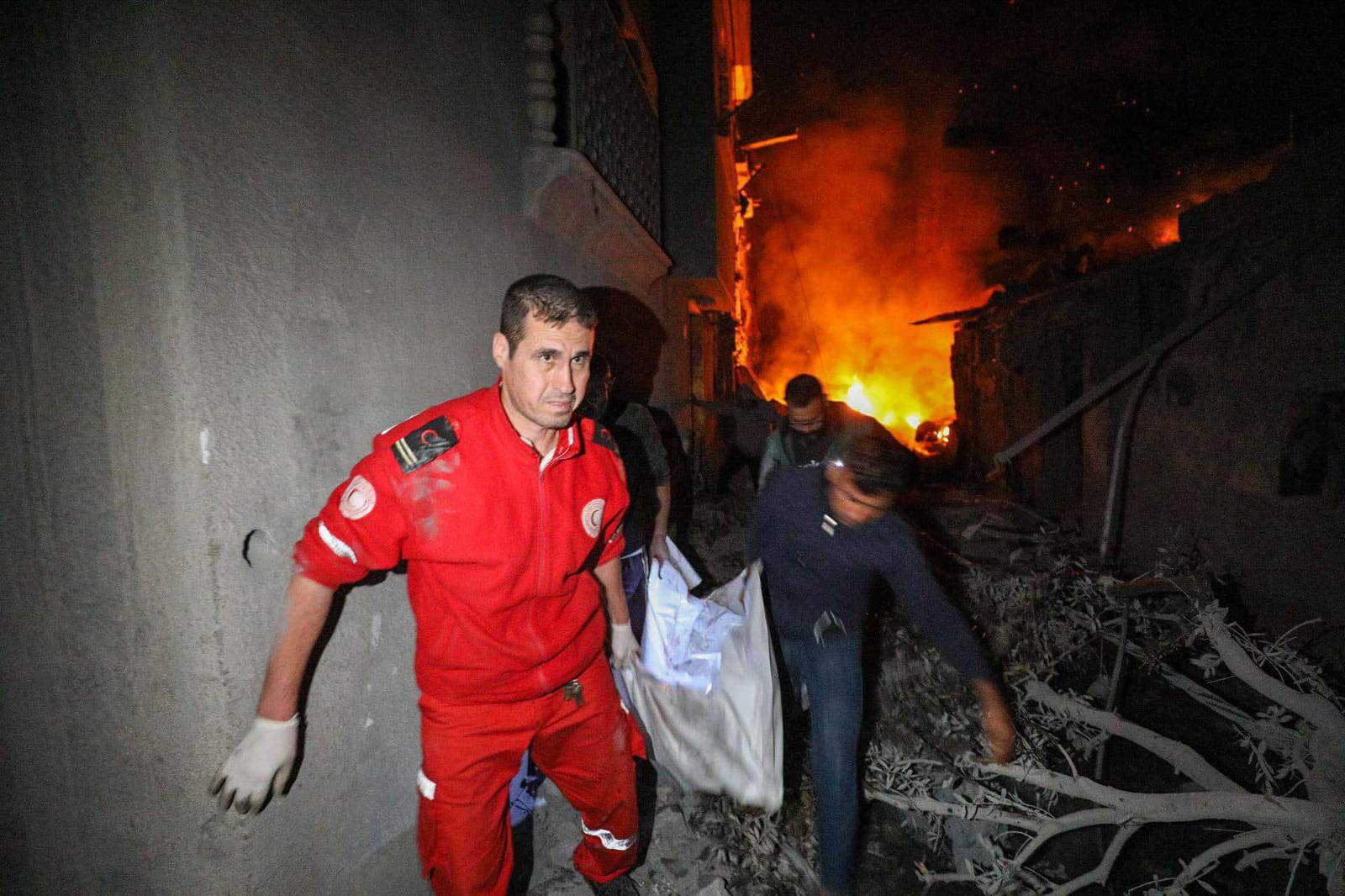A Memory Etched in the Blood of Loved Ones

By: Raed Alnems
In Gaza, when memory inscribes its chapters with the blood of loved ones, it becomes almost impossible to escape the details of pain.
I cannot forget—and I never will—the trembling voice of a woman pleading with me over the phone: “My children are dying… Rami is bleeding, please, I beg you, send the ambulance!”
It was the wife of my friend, Rami Zaarab, calling me by name from the midst of hell, on the evening of Sunday, June 30, 2024. The clock read 8 p.m. when their home in Rafah was bombed. I could not have imagined that her desperate call would be their farewell cry.
Rami—my friend and companion in life—fought for more than nine hours, bleeding beneath the rubble with his children.
That night, I was on the phone without pause, searching for a way to reach them, begging every authority, knocking on every closed door. I pleaded with the ambulance and emergency teams of the Palestinian Red Crescent, and I implored the International Committee of the Red Cross to coordinate with the Israeli military to allow access for the rescue crews.
But there was no response.
The area had been declared a “red zone”—inaccessible. The repeated GPS coordinates we sent were of no use. Rami kept bleeding, waiting for a hand of mercy to reach him, but humanity arrived too late. Far too late.
At dawn, around 5 a.m., we finally reached what was left of their home, now mostly rubble. By then, Rami was gone. Four of his children were gone with him. Only his wife and their youngest daughter survived—miraculously.
Since that day, I no longer sleep as I once did. The voice from that night haunts me still—the groans of Rami as he bled, her desperate pleas, the echo of her words: “Rami is bleeding, my children are dying, help us!” That voice wakes me every night.
I work with the Palestinian Red Crescent Society. I know what it means to be unable to reach the wounded. I know how a rescuer breaks from within when denied the chance to save a life—forced to stand before walls of silence.
I write these words now because the feelings of helplessness and betrayal have grown too heavy to bear. I could not save my friend, though I am meant to be part of a humanitarian system.
Where is international humanitarian law in all of this?
Where is Article 3 of the Geneva Conventions, which obliges warring parties to protect and care for the wounded?
Where is the so-called humanitarian coordination that international organizations praise so highly? And where are those endless statements about allowing medical aid, when in reality ambulances are blocked from reaching children who bleed to death?
Rami was not just a name—he was a father, a husband, a friend, a human being of flesh and blood.
His children were not statistics in the evening news, but little faces that dreamed of life—and instead fell asleep forever beneath the ruins of their home.
I write for Rami, and for everyone we have lost—because silence is betrayal, and because the story is not over.
Because her voice still screams inside me: “Save us… Save us.”
The interview is available at the following link: https://thisweekinpalestine.com/the-palestinians-lifeline-in-times-of-crisis/

